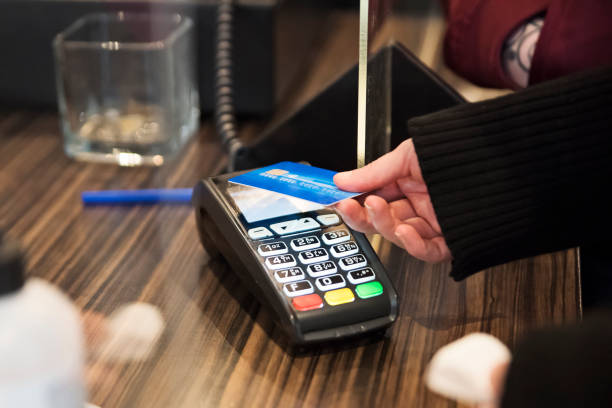
Introduction
Near-field communication (NFC) technology has revolutionized the way we share information, especially in the realm of business networking. NFC business cards, equipped with a small chip that can transfer data wirelessly, provide a sleek, modern alternative to traditional paper cards. However, as with any digital tool, security concerns arise. Can NFC business cards be cloned or hacked? This article explores these questions in detail, offering insights into the risks and protective measures associated with NFC business cards.
What Are NFC Business Cards?
Overview of NFC Technology
NFC is a short-range wireless communication technology that allows devices to exchange data over a distance of up to 10 centimeters. It is widely used in contactless payments, public transport systems, and now, business cards. The core advantage of NFC is its convenience—a simple tap is all it takes to share or receive information.
Benefits of NFC Business Cards
- Convenience: Share contact details, social media links, and more with a tap.
- Eco-friendly: Eliminate the need for paper cards, reducing environmental impact.
- Customizable: Easily update information stored on the card without reprinting.
- Professional Appeal: Impress clients and peers with cutting-edge technology.
How Do NFC Business Cards Work?
Components of NFC Cards
An NFC business card typically contains:
- NFC Chip: Stores data such as contact information, website links, or multimedia files.
- Antenna: Enables communication with an NFC-compatible device.
- Substrate: A durable material that houses the chip and antenna.
Communication Process
NFC operates on the principle of electromagnetic induction. When an NFC-enabled device (like a smartphone) comes close to an NFC card, a small amount of power is transferred to the card’s chip, activating it. The chip then transmits its data to the device, completing the interaction.
Can NFC Business Cards Be Cloned?
Understanding Cloning in NFC
Cloning occurs when an attacker copies the data from an NFC card and transfers it to another device or card. This can potentially allow the cloned card to function identically to the original.
Factors That Affect Cloning Vulnerability
- Card Type: Simple NFC cards without encryption are more vulnerable to cloning.
- Data Storage: Cards that store sensitive data without protection mechanisms are easier targets.
- Proximity: Cloning requires the attacker to be within the card’s operating range.
- Technology Used: Advanced cards with encryption and authentication protocols are much harder to clone.
While cloning is possible, it’s not a trivial task and often requires specialized equipment and technical expertise.
Can NFC Business Cards Be Hacked?
Common NFC Hacking Techniques
- Eavesdropping:
- An attacker intercepts the communication between the NFC card and the receiving device.
- This is challenging due to NFC’s short range, but not impossible with sophisticated equipment.
- Data Manipulation:
- The attacker alters the data being transmitted to the receiving device.
- This can mislead users or direct them to malicious websites.
- Relay Attacks:
- Involves intercepting and relaying communication between the card and the device to a remote attacker.
- Device Malware:
- If the receiving device is compromised, it can exploit vulnerabilities in the NFC card to execute malicious actions.
Real-world Scenarios
- Fake Business Cards: An attacker could distribute cloned or malicious NFC cards that redirect recipients to phishing sites.
- Unauthorized Access: Sensitive information stored on poorly secured NFC cards could be exploited for identity theft or fraud.
How to Secure NFC Business Cards
Encryption and Authentication
- Use NFC cards that support Advanced Encryption Standard (AES) or similar protocols.
- Implement authentication steps to verify the legitimacy of the NFC card and the receiving device.
Using Secure Protocols
- NDEF (NFC Data Exchange Format): Ensures proper structuring of NFC data.
- SSL/TLS Encryption: For links stored on NFC cards, ensure they lead to secure HTTPS websites.
Best Practices for Users
- Avoid Public Sharing: Don’t use NFC cards to share highly sensitive data.
- Monitor Device Security: Ensure your smartphone or NFC reader is protected against malware.
- Regular Updates: Update the card’s firmware if applicable, to patch vulnerabilities.
- Verify Links: Double-check links and files before accessing them via NFC.
Future of NFC Business Card Security
Advancements in NFC Technology
- Dynamic NFC Tags: Allow data to be updated securely, reducing the risk of outdated or insecure information.
- Enhanced Encryption Standards: New protocols aim to make cloning and hacking increasingly difficult.
Emerging Security Features
- Two-factor Authentication: Combining NFC with biometric verification or PINs for added security.
- Blockchain Integration: Storing NFC card data on a decentralized ledger to prevent tampering.
- Proximity Controls: Limiting communication to specific devices or individuals.
Conclusion
NFC business cards offer undeniable benefits in terms of convenience and professional appeal. However, like any technology, they come with potential security risks, including cloning and hacking. While these threats are real, they are manageable with the right precautions and security measures. By understanding how NFC works and implementing best practices, users can confidently leverage this innovative tool while minimizing risks. The future holds even greater promise for NFC security, making it an increasingly viable option for modern networking.





Leave a Reply